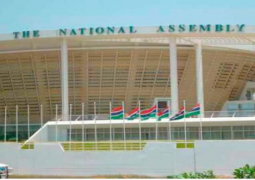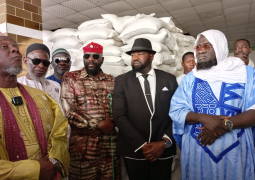Sanneh, appearing for the third accused and holding brief for L. J. Darboe, counsel for the second accused, argued that the prosecution failed to lay a proper foundation before tendering the statements. He pointed out that State Counsel M. D. Mballow merely asked the prosecution witness, Badjie, if he could recognise the statement, to which Badjie replied in the affirmative, and the statement was subsequently tendered.
“There was no proper foundation laid for the identification of the statement before tendering,” Sanneh told the court. “We urge the court to reject the statements.”
Responding, State Counsel Mballow insisted that proper foundation had been established. He argued that the witness was not only asked to recognise the statement but was also directed to identify whether it was the one he recorded from the accused. “The witness identified the statement he recorded from the accused person,” Mballow said.
On the question of voluntariness, Mballow asserted that the defence failed to meet the legal requirement to trigger a voir dire. “It’s not enough to simply claim a statement was not made voluntarily,” he argued. “The defence must demonstrate the presence of inducement, threat, or promise under Section 33 of the Evidence Act.”
He also referred to Section 25 of the same Act, noting that even if a threat was present but later removed, it becomes irrelevant.
Mballow maintained that the statements in question do not warrant a mini-trial, urging the court to admit them into evidence.
In reply on a point of law, defence counsel Sanneh invoked Section 33 of the Evidence Act, which renders any confession irrelevant if obtained through threat or inducement. Citing legal scholar Hassan B. Jallow, Sanneh emphasised that voluntariness is the principal test for admissibility.
He contended that the prosecution misconstrued Section 35, arguing that it supports and reinforces Section 33. “Even if inducement or threat is later removed, the statement remains inadmissible,” Sanneh asserted.
He urged the court to order a voir dire to determine the voluntariness of the cautionary statements before they can be admitted as evidence.
The case was adjourned until 2 June 2025.
Read Other Articles In Headlines
Hon. Magassy says Barrow ‘will bring university, airport in Basse’
Nov 16, 2021, 11:32 AM




